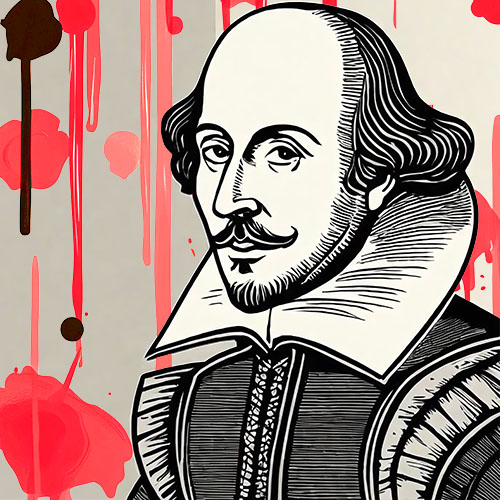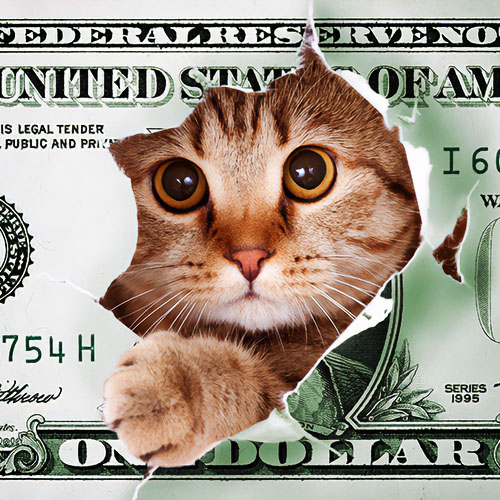The War That Was Over Quicker Than Lunch
Anglo-Zanzibar War of 1896
It all kicked off on August 27, 1896 at 9:00 a.m. … 40 minutes later it was over. As wars go, this was a quickie.
Every war, of course, has its own unique character — but one thing most wars have in common is that they tend to drag on a bit. Relatively speaking, wars are usually pretty long. Even the first Gulf War, which was over pretty snappily, lasted six months, which is quite a stretch to be in the desert in heavy fatigues. The Six-Day War of 1967 was lightning quick by war standards but still much longer than Peter Jackson’s Hobbit trilogy.
This is what makes the Anglo-Zanzibar War of 1896 perhaps the most special war of all time: It was all over inside three-quarters of an hour. It’s the only war on record to be outlasted by an average episode of Breaking Bad, and it is a credit to all involved that, once hostilities broke out, it was all able to be sorted out so speedily.
To start at the beginning — which wasn’t particularly distant from the end — on August 25, 1896, the Sultan of Zanzibar, Hamad bin Thuwaini, passed away, and the throne of the tiny African island nation passed to his successor, Sultan Khalid bin Barghash.
This posed a problem for Britain, which had previously recognized Zanzibar’s independence and acknowledged it as a sovereign nation, but with the classically British caveat, “You know, not really.”
Although they didn’t technically own Zanzibar, the British were quite keen to keep control of it, especially as Germany was trying to throw its weight around in East Africa. With the 20th century looming and a couple of really promising wars penciled in to the schedule, Britain was eager to curb German influence as much as possible. With that in mind, the demise of the pro-British Thuwaini and accession of the much less pro-British Khalid gave the poms the screaming irrits.
Following the national motto, “Do what we say, grubby little foreigners,” Britain quickly issued an ultimatum: Khalid bin Barghash was to get out of the palace and let their preferred sultan, a sound chap by the name of Hamud bin Muhammed, move in, by 9 a.m. on August 27, or there would be hell to pay.
Nine o’clock on the morning of the 27th, however, found Khalid very much still in occupation of the palace, sitting tight with his little army and his flag flying proudly above — a flag that, he informed the British who were anchored in the harbor at Zanzibar Town, he had no intention of taking down. “We do not believe you will open fire,” read the message the new sultan sent to the British commander. “LOL,” replied the British consul, Basil Cave, “check this out then, bruv.” And with that the Brits opened fire.
Her Majesty’s ships Raccoon, Thrush and Sparrow — the ships with the really butch names being required for far more serious wars — began bombarding the palace. The first shot took out one of the Zanzibari cannons, and also caused Sultan Khalid to immediately bolt for the hills. The palace, which was mostly made of wood, and its inhabitants, who were mostly made of meat and bones, were equally ill-equipped to deal with the British shells, and both palace and men quickly began to fall apart.
A gallant effort to return fire came from the Zanzibaris’ decrepit ship the Glasgow, which fired on the British fleet, drawing a quick riposte, which sank the Glasgow without delay as the crew ran up a British flag by way of apology.
By 9:40 the war was over.
By the afternoon, Hamud bin Muhammed was sultan. Zanzibar had learned a valuable lesson about the advisability of standing up to bigger countries with better guns, and Britain had learned a valuable lesson about how awesome it was.
Once again the British Empire was in complete control of a foreign country, and all was right with the world once more.
But both winner and loser in this delightful boutique war could take pride in the fact that they had done something nobody had done before, and have not done since: fight a war from beginning to end in less time than it takes to roast a Christmas turkey.
That’s something nobody can ever take away from them.
This certainly qulifies as a fun recounting of a moment in history where very quickly one side of a conflict had to be wondering, “Just what the heck was I thinking, again?” … That said, we were most impressed with the shorthand language used in 1896. Heck we though “LOL” originated with Social Media. Of course Canada claims credit for that, should you be interested. You may not have any idea what a BBS (Bulletin Board System) looked like in the early days of the internet, but if you click on that link, you will get a bit of an idea. Now just imagine a little-bitty screen with a dark gray screen and very pixelated letters on it (probably in green). As for us, we will happily give them credit should they feel it important. How much can you brag about snow and maple syrup, eh?



















